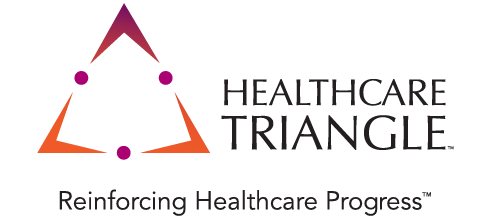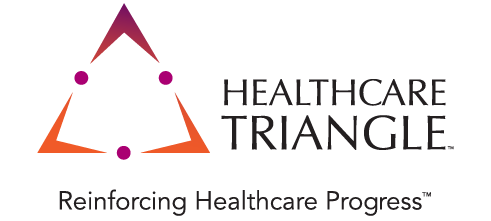Digital Innovations Behind the Future of Life Sciences Industry
Healthcare Triangle
Jan 5, 2023
2023 is shaping up to be an exciting year for the life sciences sector. Several major trends are emerging that promise to revolutionize the way we think about health and disease, from breakthroughs in diagnostics to new innovations in personalized medicine.
Here, we explore some of the biggest predictions and trends in the life sciences space for 2023, and what they could mean for the industry.
- Get to value faster with cloud: Investments in cloud platforms continue to be the top investment priority for life sciences leaders. According to Gartner, in 2023, 49% of life sciences CIOs plan to invest in cloud platforms.1 The cloud platforms provide life sciences organizations with a number of benefits, from cost savings to improved scalability and flexibility. By investing in a secure, compliant, fully managed cloud foundation platform like Healthcare Triangle’s CloudEzTM, life sciences organizations can modernize their cloud infrastructure and accelerate cloud deployment 10X faster at a fraction of cost.
- Collaborative innovation: According to Gartner, data and analytics leaders who share data externally generate three times more measurable economic benefit than those who do not.2 Collaborating with business peers through third-party data sharing platforms can assist in demonstrating better treatment outcomes and accelerate personalized medicine. Third-party collaborative data platforms give life sciences organizations the ability to enable access to specific data only via an algorithm, which can analyze the data for research. The data are essentially “shared but sealed.” The raw data are never disclosed, and data owners can control which portions of a data set are used and how they are used. Leverage HCTI’s Neutral ZoneTM, the secure and compliant third-party data collaboration platform to advance and accelerate data sharing in life sciences.
- Unlock the potential of decentralized clinical trials: As costs and regulatory pressures of traditional clinical trials rise, digital innovations will inexorably alter the life sciences landscape. In the life sciences sector, decentralized clinical trials (DCTs) are swiftly becoming a hallmark of innovation due to their potential for streamlining processes and achieving better outcomes. According to Forrester, in 2023 decentralized clinical trials will double.3 DCTs enable life sciences organizations to reduce their reliance on physical sites, allowing them to access a wider range of patients and locations. In addition, they offer enhanced data security and privacy to ensure that sensitive patient data is kept safe from unauthorized access. To make DCTs successful, life sciences and pharma companies leverage a wide range of technologies such as cloud computing, blockchain, and artificial intelligence. HCTI’s life sciences services focused on cloud, data, AI, and blockchain help life sciences and pharma companies to achieve their business goals while meeting security and compliance regulations.
- Drive value through data analytics: Business intelligence and data analytics are rapidly advancing in life sciences industries – a trend that is projected to increase by 2023. According to Gartner, 60% of life sciences leaders will spend more in business intelligence/data analytics in 2023 compared with 2022.4 In order to stay competitive life sciences organizations must look beyond simply utilizing data analytics; they need to shift their focus towards modernizing the digital core which is all about data. Life sciences organizations’ leveraging large quantities of existing data can drive new innovation, improve decision-making speed and create cost savings through streamlining processes – but bringing this vision into reality involves overcoming challenges such as data security, data storage, compliance and governance. A centralized data analytics and AI platform is essential to help researchers discover the insights they need more quickly while saving both time and money for businesses and facilitating collaborative working between scientists across various projects. HCTI’s DataEzTM, the cloud data platform and cloud/modernization services using our deployment accelerators for a well-architected, secure, and compliant, including dashboards accelerator to monitor movement and status of data 24/7 helps increase visibility by providing access to wide variety of data as well as collaboration tools in bringing outstanding results and success.
- Enhance outcomes with metaverse/digital twins: By leveraging digital twins, the virtual representations of physical products or processes, life sciences organizations can gain a deeper understanding of complex biological systems and develop treatments and therapies more efficiently. In their 2022 Life Sciences Technology Vision report, Accenture found that 91% of medical technology executives and 85% of biopharma executives expect the metaverse will have a breakthrough or transformational impact on their organizations.5 Digital twins in the pharma manufacturing units can facilitate real-time remote monitoring of tools and machinery on the shop floor to optimize uptime and maintenance. Metaverse allows pharma companies to reach out to potential customers and physicians through digital conferences, virtual advertisements, sponsorships, educative games, etc.
- Revolutionize life sciences with low-code application platforms (LCAP): Low-code application platforms are quickly becoming an essential tool in life sciences, allowing organizations to quickly build powerful apps that are tailored to their specific needs. LCAP provides rapid application development and deployment using low-code and no-code techniques with the simplified one-button deployment of applications. By 2025, 20% of new life science technology solutions will leverage low code application platforms (LCAP), diversifying business-facing offerings and speeding innovation.6 LCAPs offer many benefits to the life sciences industry, from streamlining processes, enabling collaborative research, and cutting costs to increasing agility.
In conclusion, it is clear that digital trends are rapidly transforming the life sciences industry. By leveraging advanced technologies like cloud computing, data analytics, decentralized clinical trials, and digital twins, life sciences organizations can drive innovation.
At Healthcare Triangle, we specialize in providing digital solutions for life sciences organizations that help them gain a competitive edge.
If you’re looking to leverage the latest digital trends to drive innovation in your life sciences organization, then get in touch with our experts today. Drop an email to info@healthcaretriangle.com.



